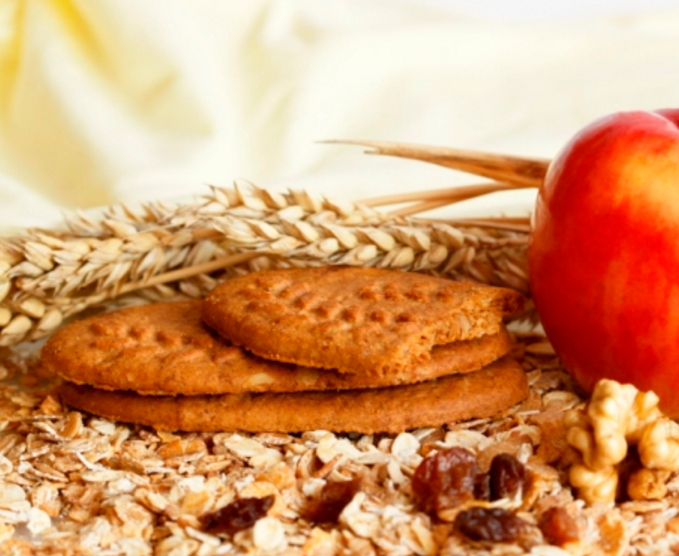80% of People eating Fiber Live a “Longer and Healthier Life”
Category: Healthy Nutrition

Our bodies don’t digest fiber, it goes through our intestines and keeps our bowel movements regular. The roughage in vegetables, fruits, and whole grains do more than just maintain digestive health, they keep us healthy as we age.
Research in The Journals of Gerontology, Series A: Biological Sciences and Medical Sciences, finds people who eat more fiber from cereals, breads, and fruits show a lower risk of age-related diseases and disability, like high blood pressure and mental issues. Scientists examined how fiber intake contributed to successful aging compared to other factors like total carb intake, glycemic index, glycemic load, and sugar intake, and it turns out that fiber has the largest impact on your health into old age.

“The variables we reviewed show fiber intake – a type of carbohydrate that the body won’t digest – had the most powerful influence,” said Associate Professor Bamini Gopinath in a statement. “Essentially, we found that those who had the highest intake of fiber or total fiber actually had an almost 80 percent greater likelihood of living a long and healthy life over a 10-year follow-up. That is, they were less likely to suffer from hypertension, diabetes, dementia, depression, and functional disability.”
There are two types of dietary fiber – soluble and insoluble. The soluble fiber is able to dissolve in water, and becomes a type of gel that reduces cholesterol and glucose levels. It’s found in oats, peas, beans, apples, carrots, and citrus fruits like oranges. Insoluble fiber can’t dissolve – and helps keep other digestive fluids moving through your intestines.
The scientists analyzed 1,600 adults over the age of 50 and part of the Blue Mountains Eye Study, that gathered data on systemic diseases and aging. The scientists focused on the link between carbohydrate intake and aging. They realized people who ate more fiber were better able to age successfully, meaning they were more unlikely to suffer from disability, depressive symptoms, cognitive impairment, respiratory diseases, and other chronic diseases like cancer, heart problems, stroke, and diabetes. In other research, a high-fiber diet showed the ability to maintain gut bacteria and lower a woman’s breast cancer risk.
The study may have a few issues. Many participants in the study already had low sugar intake, showing that aging may have been impacted more by the low sugar in their diets/proper nutrition instead of just the fiber. However, the evidence appears to indicate that fiber results in good health in general. The result, a diet high in fiber indicates health improvement.
To add more fiber to your diet, avoid processed foods like canned fruits/vegetables, or white breads and pastas. The refining process strips the outer coat of whole grains – which contains most of the fiber. Whole grain foods, fresh fruits and vegetables, and legumes like beans and peas have the most fiber.
Source: Gopinath B, Flood V, Kifley A, Louie J, Mitchell P. Association Between Carbohydrate Nutrition and Successful Aging Over 10 Years. The Journals of Gerontology, Series A: Biological Sciences and Medical Sciences, 2016.



Facebook Comments